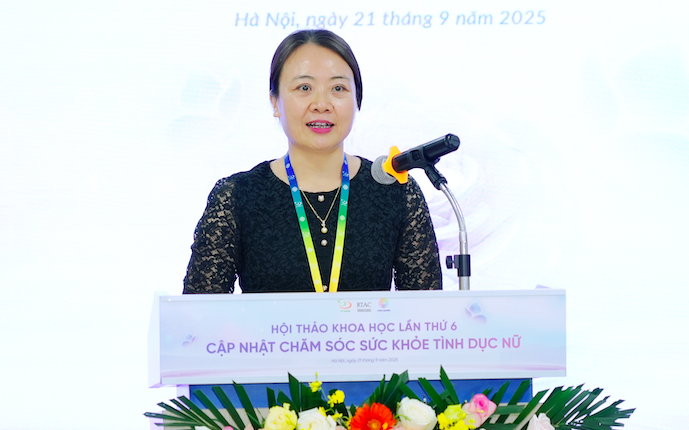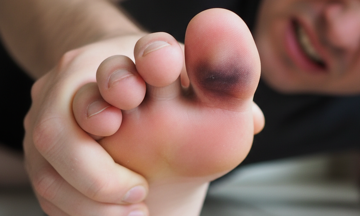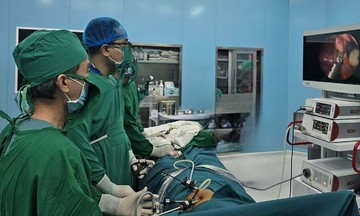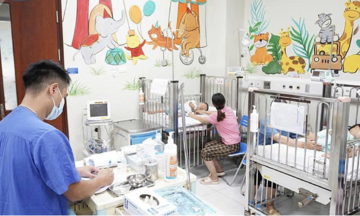Experts shared this information at the scientific conference "Updates on women's sexual health care," organized by the Hanoi Andrology and Infertility Hospital on 21/9. The event provided a platform for leading experts, doctors, and medical staff to exchange, share, and discuss various aspects of the current state of treatment for sexual health issues in women.
"Women's sexual health care in our country still faces many challenges and gaps in access, diagnosis, and treatment," said Associate Professor Doctor Le Minh Tam, Vice President of the Vietnam Society of Sexual Medicine. He added that few cases receive timely examination and treatment, mainly due to feelings of shame and limited knowledge about women's sexual health. Women often endure sexual or endocrine disorders without seeking medical help, leading to a reduced quality of life and negatively impacting family happiness and mental well-being.
According to experts, nearly 40% of women experience sexual dysfunction. The 4 main types are decreased libido, decreased arousal, pain disorders during intercourse, and orgasmic disorders. Among these, decreased libido is the most common across all age groups, with the highest rate recorded in surgically menopausal women (26%) and the lowest in naturally menopausal women (9%).
 |
Doctor Pham Minh Ngoc counsels a patient experiencing sexual dysfunction. Photo: Hospital provided |
Doctor Pham Minh Ngoc counsels a patient experiencing sexual dysfunction. Photo: Hospital provided
Doctor Pham Minh Ngoc, Deputy Director of the Hanoi Center for Sexual Medicine, said that during examinations, doctors have observed that many couples not only face difficulties with fertility but also experience problems in their sexual lives. Unlike reproductive health, which is frequently discussed, women's sexual health remains a sensitive topic that receives little attention, especially in the context of East Asian societies like Vietnam.
Patients with decreased libido at the center primarily fall into two groups: primary – present from the first sexual experiences, and secondary – previously normal libido, but due to various reasons, they no longer have much sexual drive in their marital relationship.
Clinical practice shows that secondary hypoactive sexual desire disorder is more common. The causes are diverse and include: vaginal dryness causing discomfort; vaginismus leading to pain and avoidance of intercourse; a partner experiencing sexual dysfunction or lacking attention to their partner's feelings; side effects of contraceptives; prolonged gynecological infections; effects after surgery or procedures such as endometriosis, uterine fibroids, pelvic masses, etc. Additionally, premenopausal and menopausal women also commonly experience this condition.
In addition to decreased libido, doctors also receive and treat many cases of decreased arousal, anorgasmia, vaginismus, and premenopausal-menopausal disorders. Notably, most patients only seek medical attention when the condition has persisted for a long time, seriously impacting their mental health and marital relationship.
Doctor Ngoc once treated a case of vaginismus that lasted for 13 years. The patient had sought treatment at various places before, but the focus was solely on gynecological issues without in-depth examination of sexual health. Due to the lack of effective results, the patient discontinued treatment for many years. Upon visiting the Hanoi Andrology and Infertility Hospital, the patient received counseling and a clear understanding of their condition. After treatment with sex therapy, the vaginismus has now been cured, and the patient is fully capable of conceiving naturally.
From a psychological perspective, Master of Science Nguyen Quoc Linh stated that psychological factors play a crucial role in all stages of female sexual activity. Female sexual dysfunctions, such as vaginismus, not only cause physical difficulties but also have profound psychological impacts, leading to anxiety, fear, and avoidance of intercourse in women.
In addition, cultural and social barriers are also significant factors. In many cases, women are often hesitant to express their sexual desires due to societal prejudices that women "should not be too proactive" in their sexual lives. This makes it difficult for them to be open about their feelings, leading to difficulty achieving orgasm and reduced quality of sexual relations. In some severe cases, a fear of male genitalia develops, significantly impacting sexual life and family happiness.
"Besides physical and bodily factors, sexual psychology is an area that needs proper attention. It's important to identify the psychological barriers that make women hesitant about sex, so appropriate support methods can be provided," said Linh.
 |
Master of Science Doctor Le Thi Thu Hien, Medical Director of the Hanoi Andrology and Infertility Hospital, speaks at the conference. Photo: Minh Tam |
Master of Science Doctor Le Thi Thu Hien, Medical Director of the Hanoi Andrology and Infertility Hospital, speaks at the conference. Photo: Minh Tam
At the conference, experts agreed that one of the major current challenges in women's sexual health care in Vietnam is the limited awareness of the patients themselves. Many find it difficult to seek treatment, unsure of what questions to ask or who to confide in about their intimate issues.
In light of this reality, scientific research plays a key role in updating and improving the quality of women's sexual health care. The Hanoi Andrology and Infertility Hospital has conducted research on common clinical forms of female sexual dysfunction and female sexual dysfunction from a psychological perspective. The two studies were developed based on the synthesis of clinical data and in-depth research. These reports summarize practical experience in treatment, offering high clinical practicality and applicability.
In-depth studies help doctors understand the mechanisms, causes, and risk factors of the diseases, thereby creating a basis for developing multi-modal and personalized treatment regimens tailored to each patient. In practice, applying research findings to clinical settings not only helps shorten diagnostic time and improve treatment effectiveness but also contributes to enhancing the quality of life.
Le Nga












